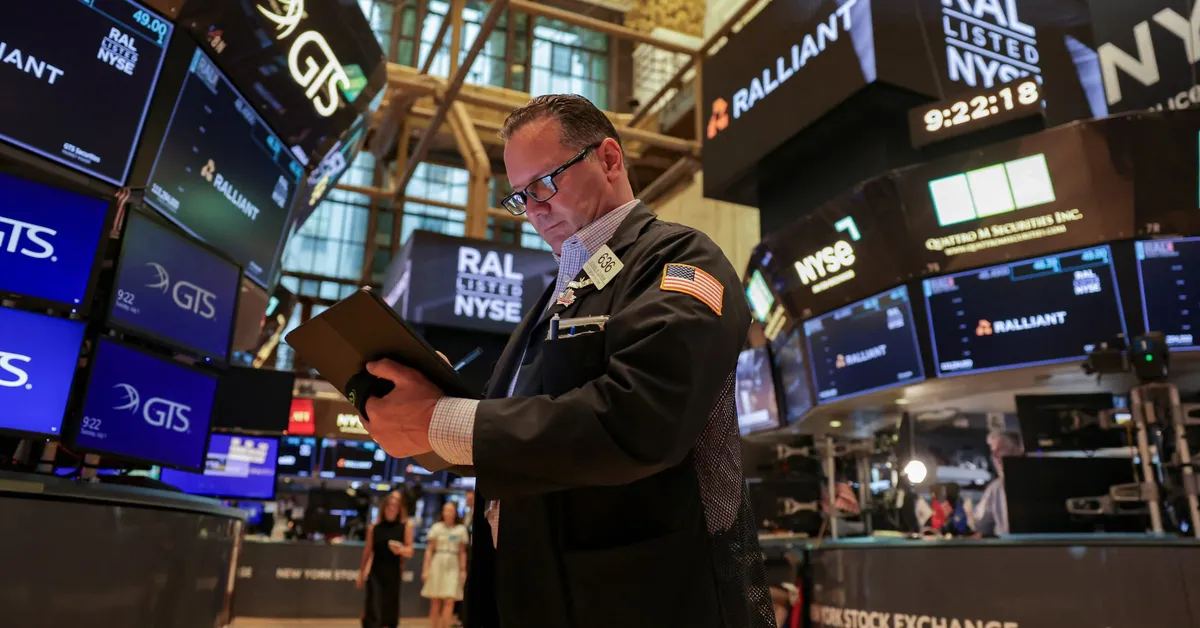
Wall Street's major indexes experienced a downturn on Monday, with the Dow Jones Industrial Average falling by 0.46%, the S&P 500 down 0.44%, and the Nasdaq Composite declining by 0.56%. This decline in the stock market was largely attributed to escalating tariff tensions that have dampened risk sentiment. Additionally, shares of Tesla plummeted after CEO Elon Musk announced plans to launch a new political party.
Treasury Secretary Scott Bessent indicated that the U.S. government is expected to make several crucial trade announcements within the next 48 hours, leading up to a deadline on Wednesday for finalizing various trade pacts. President Donald Trump stated on Sunday that the nation is nearing the completion of multiple trade agreements and will inform other countries about increased tariff rates by July 9, which are set to take effect on August 1.
In April, Trump introduced a base tariff rate of 10% applicable to most countries, along with additional duties that could reach up to 50%. This announcement significantly impacted the Nasdaq, pushing it into a bear market. Although the effective date for all but the 10% tariff was later postponed until July 9, this new deadline provides countries with a three-week window for further negotiations.
Trump also issued a warning of an additional 10% tariff on nations that align themselves with the BRICS group, which includes Brazil, Russia, India, China, and South Africa, labeling their policies as anti-American.
As of 10:22 a.m. ET, the Dow Jones Industrial Average had fallen by 207.65 points, or 0.46%, dropping to 44,620.88. Meanwhile, the S&P 500 lost 27.38 points, or 0.44%, settling at 6,251.97, and the Nasdaq Composite saw a decrease of 115.56 points, or 0.56%, reaching 20,485.13. Among the major sectors within the S&P, nine of eleven were trading in the red, with consumer discretionary stocks experiencing the most significant decline of 1%.
Shares of Tesla (TSLA.O) dropped 6.8%, marking its worst performance in over a month. This decline followed Musk's announcement of his intention to form a new political party named the American Party, escalating tensions within the political arena and stirring discontent among Tesla investors. Art Hogan, chief market strategist at B Riley Wealth, commented, “Tesla investors are starting to voice their disapproval regarding Musk’s return to politics. The potential for him to establish his own American party is contrary to what Tesla investors desire.”
In contrast, shares of WNS (WNS.N) surged by 14.2% following the announcement that Capgemini (CAPP.PA), a French IT services firm, has agreed to acquire the outsourcing company for $3.3 billion in cash.
Monday's market pullback occurred after both the S&P 500 and the Nasdaq reached record highs on Thursday, buoyed by a surprisingly robust jobs report that indicated resilience in the U.S. labor market. Notably, the Dow was just 1% shy of achieving an all-time high. Strong job data has also supported the Federal Reserve’s cautious stance regarding future interest rate cuts, with traders fully pricing out a July rate cut and assigning a 64.4% probability for a cut in September, as per CME Group's FedWatch tool.
Trump’s inflation-inducing tariff policies complicate the Federal Reserve's strategy for reducing interest rates. Consequently, the minutes from the Fed's June meeting, scheduled for release on Wednesday, are anticipated to provide further insights into the monetary policy outlook.
Attention is also directed towards a comprehensive tax-cut and spending bill passed by House Republicans after the markets closed on Thursday, projected to increase the national deficit by over $3 trillion over the next decade. On the NYSE, declining issues outnumbered advancers by a ratio of 2.1-to-1, while on the Nasdaq, the ratio was 1.86-to-1. The S&P 500 recorded 21 new 52-week highs and three new lows, while the Nasdaq Composite noted 69 new highs and 32 new lows.
Reporting by Pranav Kashyap and Nikhil Sharma in Bengaluru; Editing by Maju Samuel.